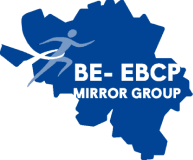Project
EpiGuide
Tracking epigenetic plasticity in circulating tumor-derived DNA to monitor drug resistance and guide personalized treatment in cancer patients
1 September 2022 - 30 August 2027
EpiGuide aims to establish a blood-based monitoring tool to trace epigenetic mechanisms driving drug resistance development during treatment.
Project description
Personalized therapy has revolutionized cancer care during the past decades, but still suffers from frequent drug resistance and relapse. A better understanding of drug resistance mechanisms and their timely tracking and prevention represent areas of urgent clinical unmet need. While novel or clonally selected genetic lesions including DNA mutations and copy number changes are well known causes of therapy failure, emerging evidence supports a role for non-genetic/epigenetic heterogeneity and plasticity in the selective process to escape the pressure of therapy.
In addition to unraveling the mechanisms controlling this epigenetic plasticity to identify new therapeutic strategies, there is a growing need for novel tools to detect and monitor epigenetic heterogeneity and plasticity that currently do not exist.
EpiGuide aims to establish a blood-based monitoring tool to trace epigenetic mechanisms driving drug resistance development during treatment. It will develop and optimize the EpiGuide assay, an analytic and computational pipeline that measures and monitors methylation and histone modifications of circulating cell-free DNA that tumor cells shed into the blood plasma. In a next step, the efficacy of the EpiGuide assay to detect epigenetic tumor cell state changes will be validated in mouse models and patient samples. The EpiGuide assay will also explore temporal and spatial dynamics of epigenetic switches related to drug resistance, and look for associations with clinical outcome. The long-term goal is to bring the EpiGuide assay into clinical practice for monitoring in clinical trials and personalized cancer care. Major impact of EpiGuide is expected for guiding patient-tailored and disease state-adapted therapies, with a specific benefit of earlier detection of evolving non-genetic tumor cell states leading to drug resistance.
Funding programme & Type of action
Funding Programme : Horizon Europe – European Research Council (ERC)
Type of Action : HORIZON ERC Grants
Grant agreement number : 101044243
Project duration
5 years
